infectious disease
Can Vitamin A Prevent Measles?
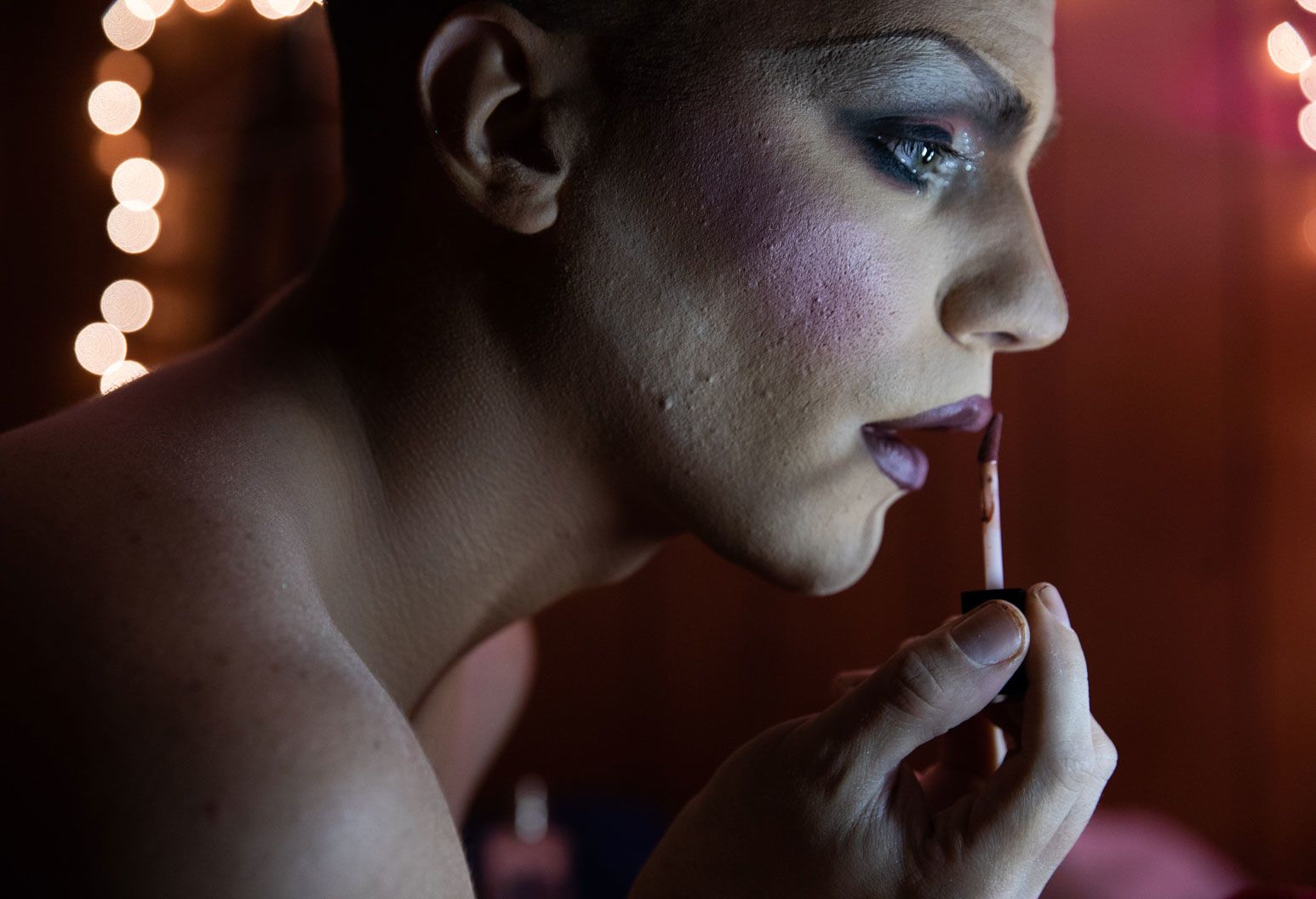
Brandon Ballone is working to make sure people with HIV feel supported and stay healthy.
7 min read
Brandon Ballone, 27, provides free HIV screenings at Northwell Health's Cherry Grove Immediate Care Center on Fire Island. Brandon, who is HIV positive, offers support and education to newly diagnosed people and is determined to help them understand that HIV is not a death sentence. At night, Brandon’s playful side comes out when he performs in drag as his alter ego, JizzaBella. Here’s how this shy kid from Queens found his confidence—and his calling.
I was very shy when I was younger. You know how some parents get calls from school because their kid pranked a teacher or skipped class? That wasn’t me. I did cross country track and field, and I’d go to practice and then come home and do homework, play video games, and watch movies. I never went to high school parties. My senior year, on senior skip day, I didn’t even skip!
My mom was a cool kid. Everybody loved her, but they knew not to mess with her. She was that kid. But not me. At one point, my aunt looked at me and said, “You know, I kind of want you just to get in trouble. Get detention or something. Can you just get in trouble?”
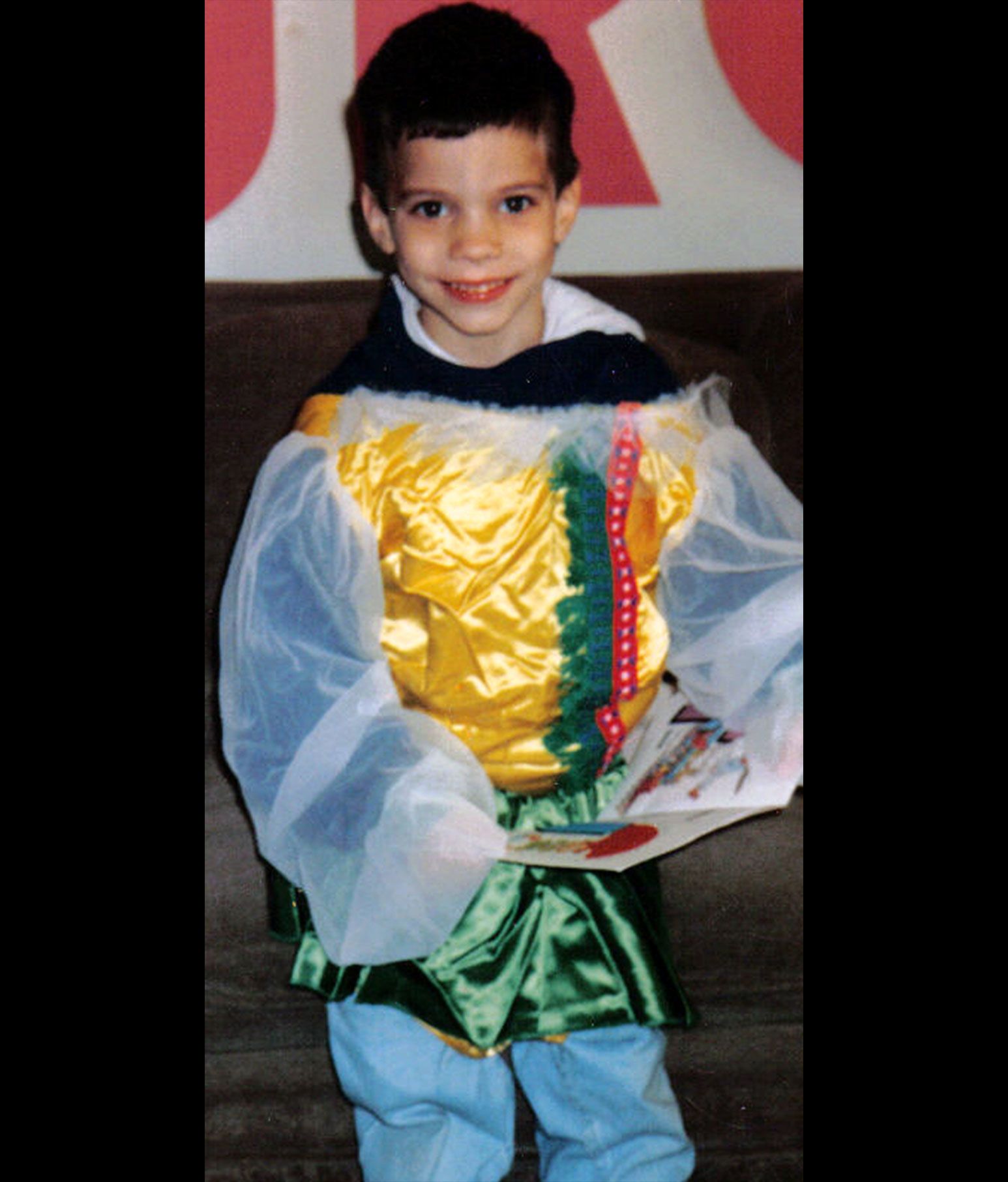
I never did get into any trouble, but when I got to college, I was looking for something—I wanted to be different. I didn’t want to be that shy kid anymore. I wanted to do something that no one would expect of me. I was taking a First Year Experience class and our very first assignment was to do something out of the box. I just happened to see a poster for a student drag show and thought, OK, that would be out of the box! So I signed up.
I had never done drag before. I didn’t even know drag was a “thing” before college. I remember watching the movie "To Wong Foo" and didn’t realize that the lead characters were men in drag. I just thought they were women. I remember telling my mother that Chi-Chi, played by John Leguizamo, was very pretty. (I had never even come “out” because I wasn’t someone who liked labels and certainly didn’t want one myself. I just wanted to be me.)
As I was figuring out my drag persona, I went to my first gay club at Muther’s in Rochester, NY. The drag show there was amazing and inspiring. I struck up a conversation with a queen, Samantha Vega, who would eventually become my drag mother. She helped me figure out my name—JizzaBella. I thought it was so cute. And only one word, like Cher, but a little cheaper!
The night of the student drag show, I had it all figured out—my name, my hair, my makeup, and I had worked out a routine to Crazy Possessive by Kaci Battaglia, which I had practiced in front of a mirror in my dorm room for weeks.
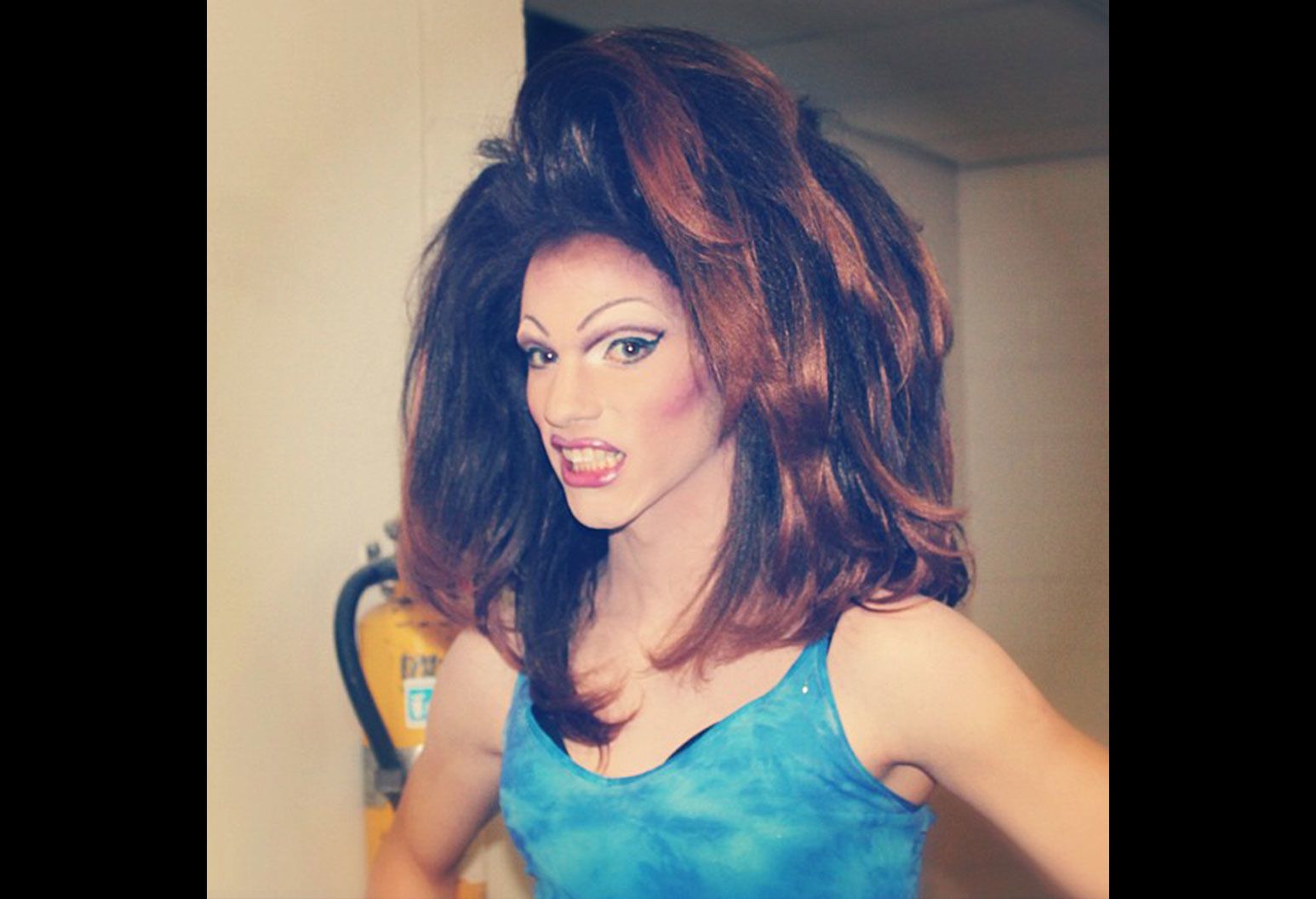
But when I walked out on stage, in the hot lights in front of all those people, I froze. I forgot my entire routine. I just stood there! It was frightening and people kept coming up and giving me dollar bills to show their support and motivate me to keep going. I was so embarrassed. If I hadn’t been wearing blush, it would’ve been fine because my cheeks were definitely rosy.
I survived that night. But I'm a perfectionist, so I kept going back to try it again and again. I knew I was finally coming into my own when I started working the runway a little bit better and people would tell me, “Oh my gosh, you're so pretty.” I performed at Muther’s for a while, then eventually moved to the big club in town called Tilt. I found that when I was on a bigger stage, with bigger crowds, my confidence would grow. I’ve been doing drag as JizzaBella for almost 10 years now. It's still a work in progress, but I just keep going.
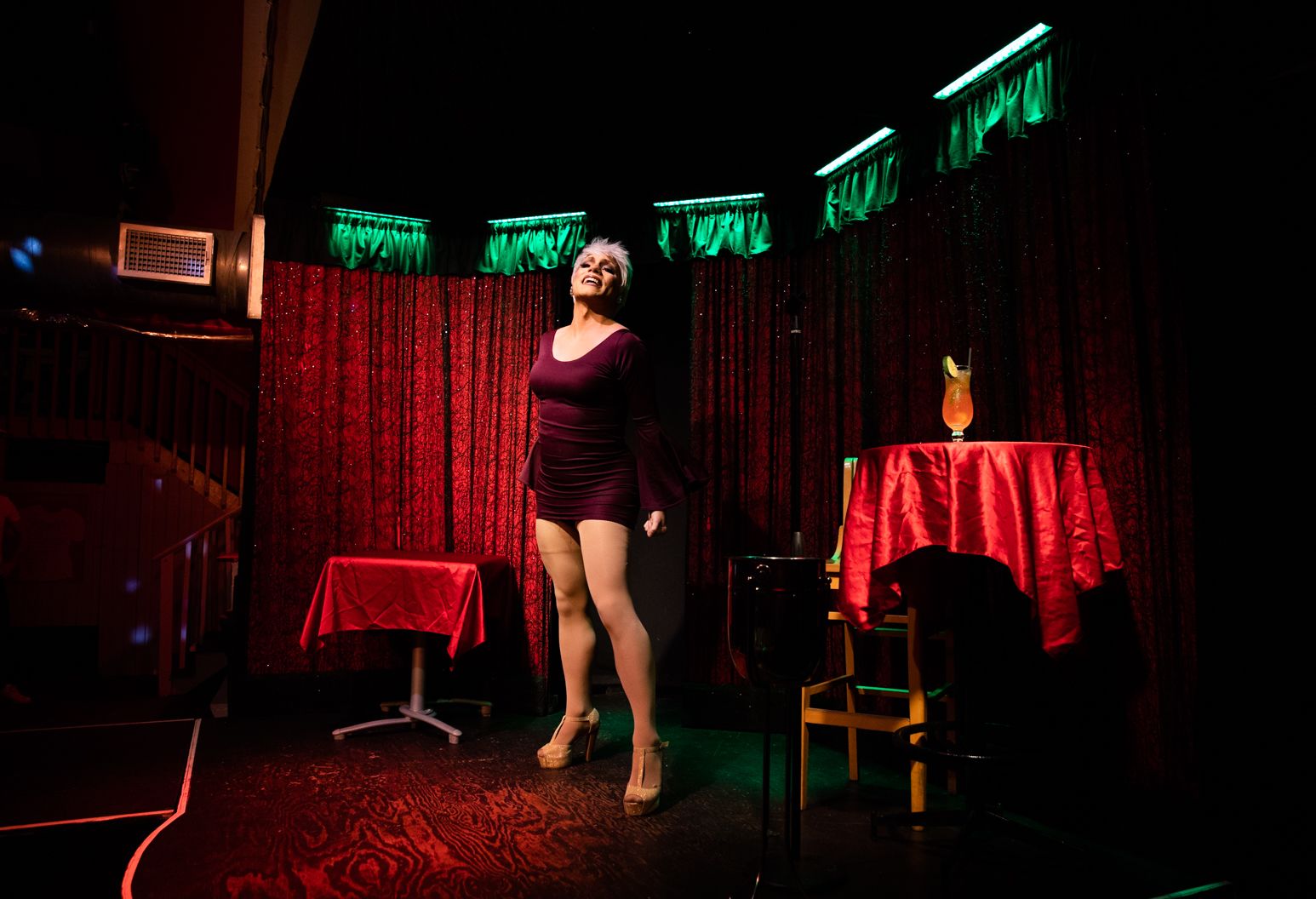
I have to take that same approach to living with HIV—I just keep going. I was diagnosed four years ago. I knew what HIV was, but I had no experience with it. It was like one of those things you hear about on TV or in movies, but, even though you know it’s a real thing, it just doesn’t feel like real life.
I went to get tested after friends told me I didn’t look well. My cheeks were sunken, which looked great in makeup. But as Brandon, I looked a little sick. I just thought it was a stomach bug or something. I went to the doctor who suggested I get tested, so I did. I was called back to the office two days later. When they sent me down the hall to talk to someone about my results, I knew—there was a box of tissues sitting on the counter and I thought, “Here we go.”
I didn’t cry. I didn’t react much at all, really. I asked about medication and diet. I tried to be upbeat and practical. But three days later, after a few drinks, I finally broke down and went through a dark period. But I kept it to myself. I didn’t want to talk about it. I didn’t tell anyone for a few years. I didn’t even want to tell my family. My mother died from cancer when I was 13 and other members of my family died at young ages, too. I also remembered the whispered stories about a cousin who died at 35 from “the flu,” which I later found out was likely AIDS. So I couldn’t tell them I was HIV positive. I didn’t want everyone to think I was going to die.
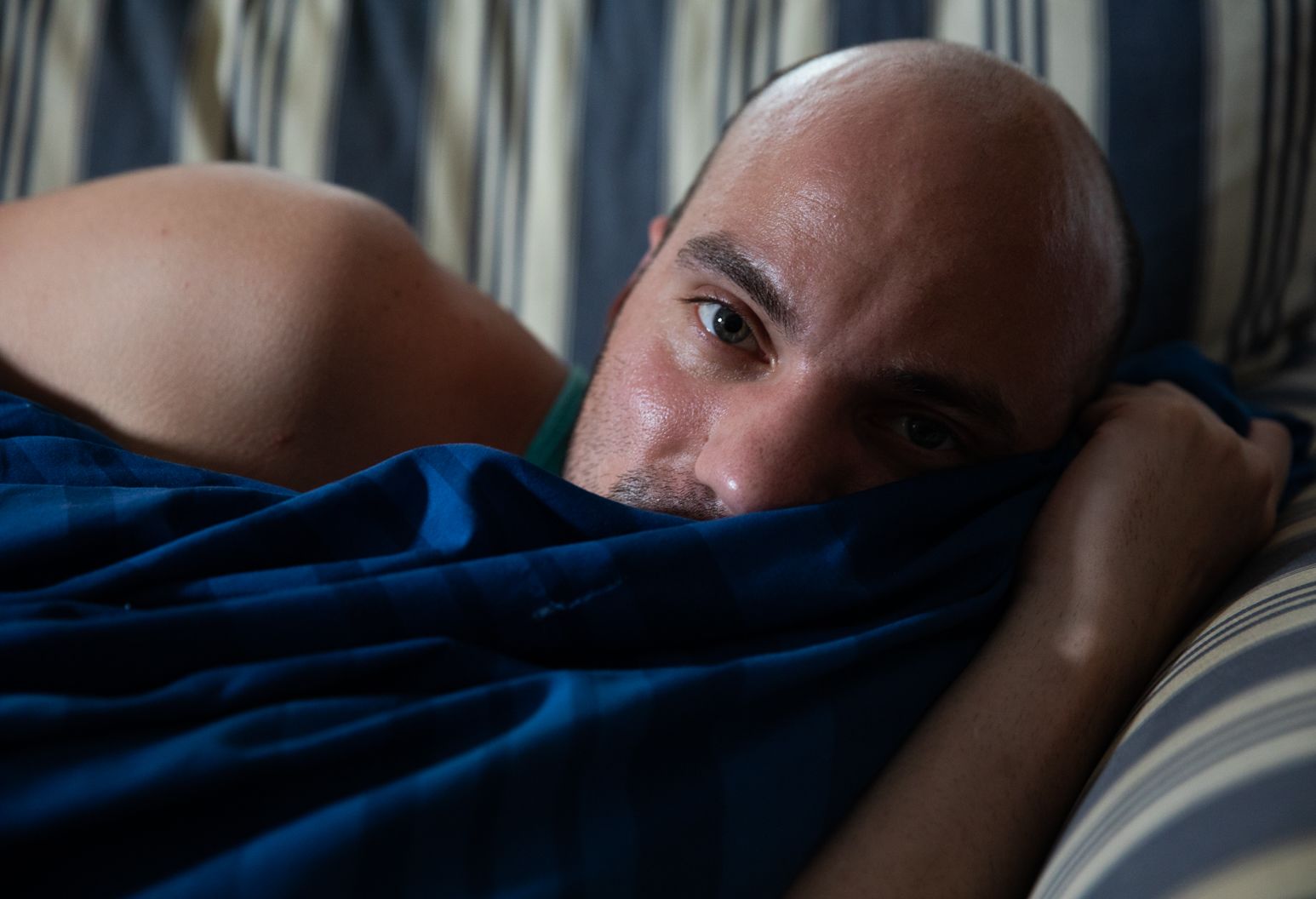
My drag mother was one of the first people I told. When I was angry and looking for someone to blame, she told me this: It's easier to blame someone than to take it and own it. Now when people ask me who gave it to me, I tell them what she said. I own it now. Because blaming someone is not going to take it away. Later, I became more comfortable and accepted that this was part of me now. It took a while. It wasn’t easy.
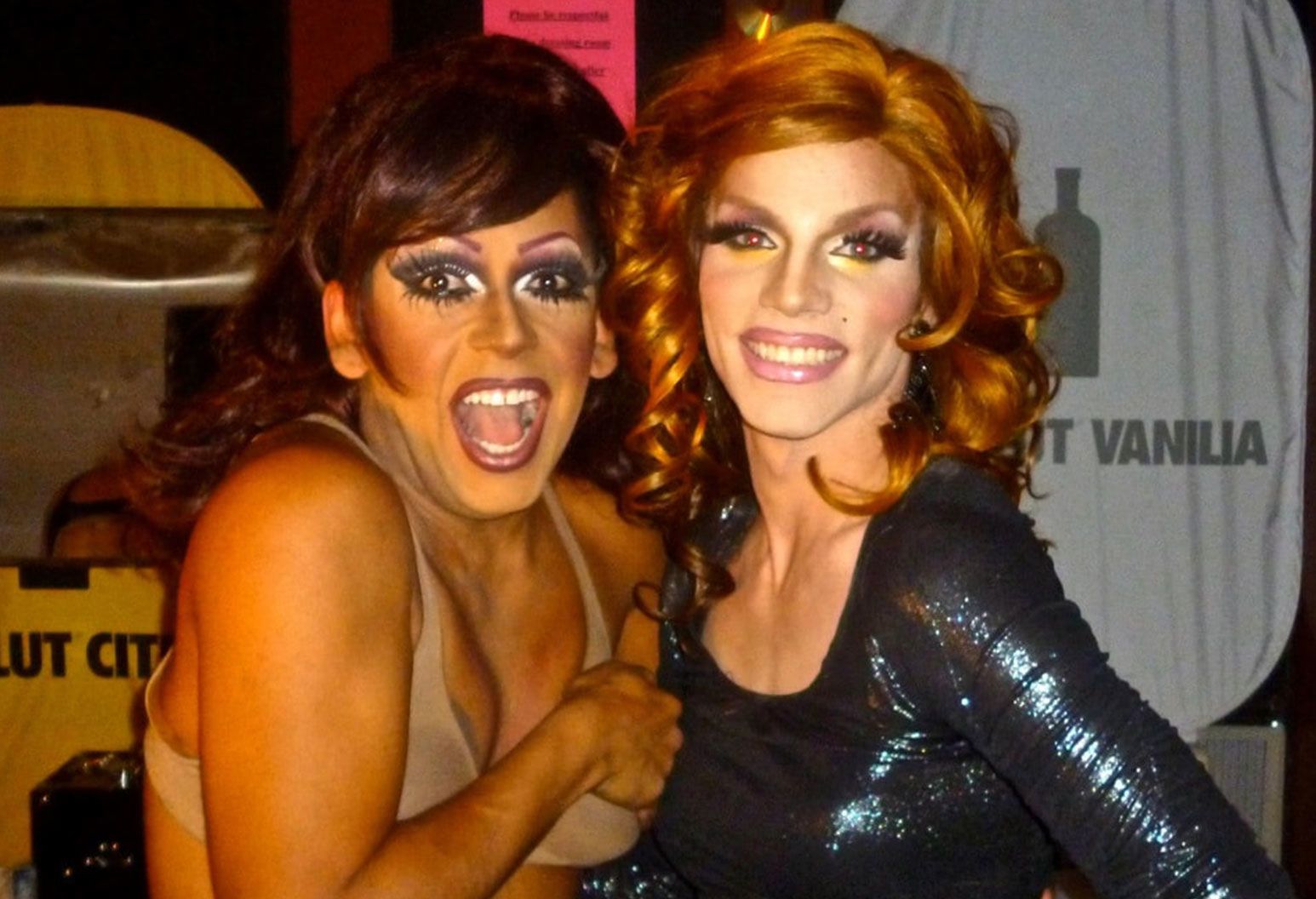
One thing I had to get better at was taking my meds. In the beginning, my body was not used to them and the side effects could be so bad that I’d skip them. I'm taking two medications every day now and I’m working on getting more exercise. I’d love to stop taking my medication. Like everyone else, I want a cure. But for now, I take it and take care of myself. I also take long walks with no plan for where I’m going. It lets me clear my head and relieve stress.
As I started to own my new life, I thought beyond myself. This past summer, I took a job providing free HIV testing at Northwell Health’s Cherry Grove Immediate Care Center on Fire Island because I wanted to learn more about the virus itself.
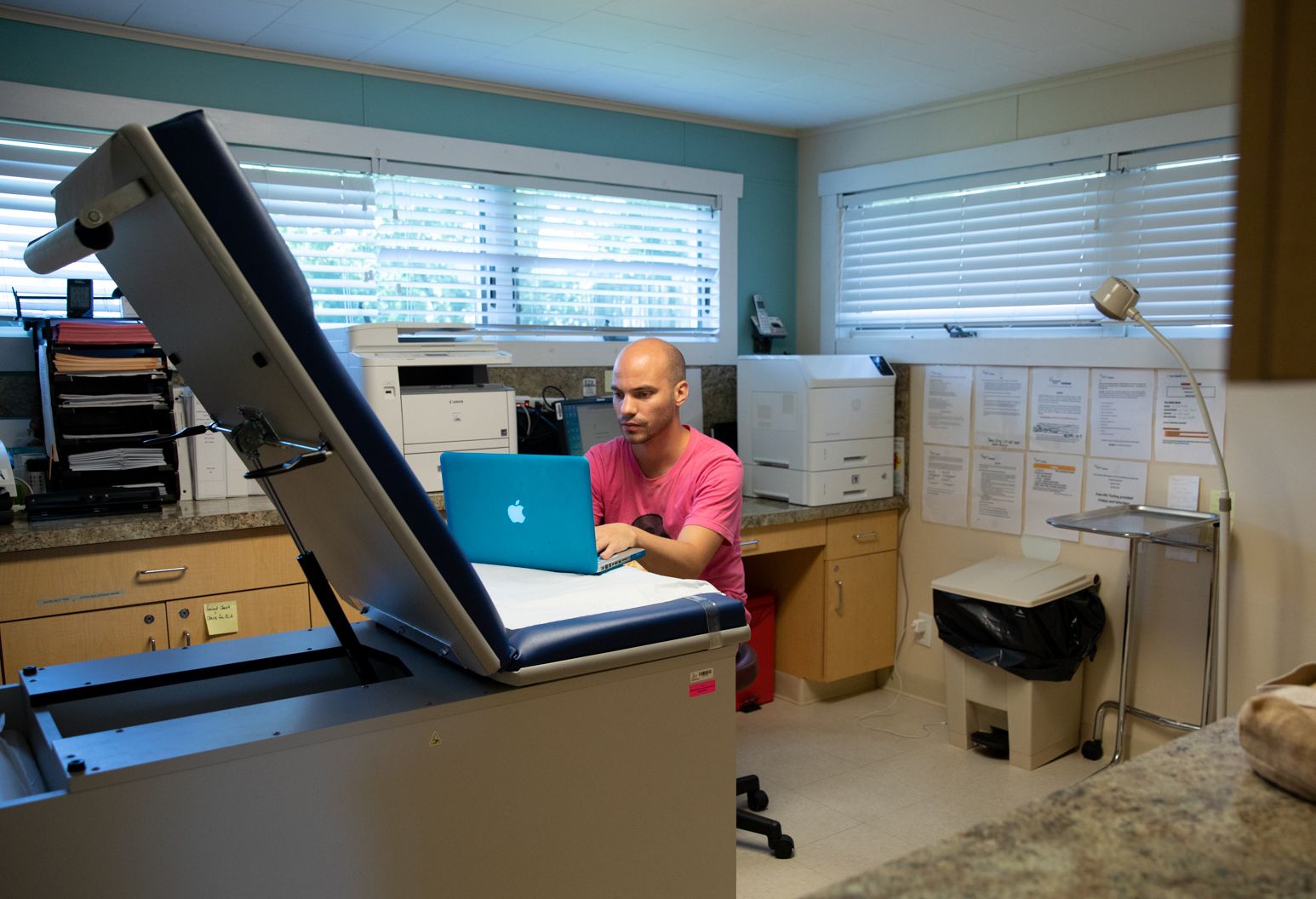
But then I grew to understand that I could really help people by being there for them when they’re scared. When I was diagnosed, my doctor made me more nervous than the actual virus. So when I do testing, I like to play music in the background, if people are OK with that. Some people may think HIV is a scary disease. But if you take care of yourself, visit your doctor as required, and just keep educating yourself about the disease, it is very manageable. And it definitely shouldn’t be scary to talk about. I want people to talk openly and ask questions—to feel comfortable and relaxed because if they have a positive result, they need to know it's not the end of the world.
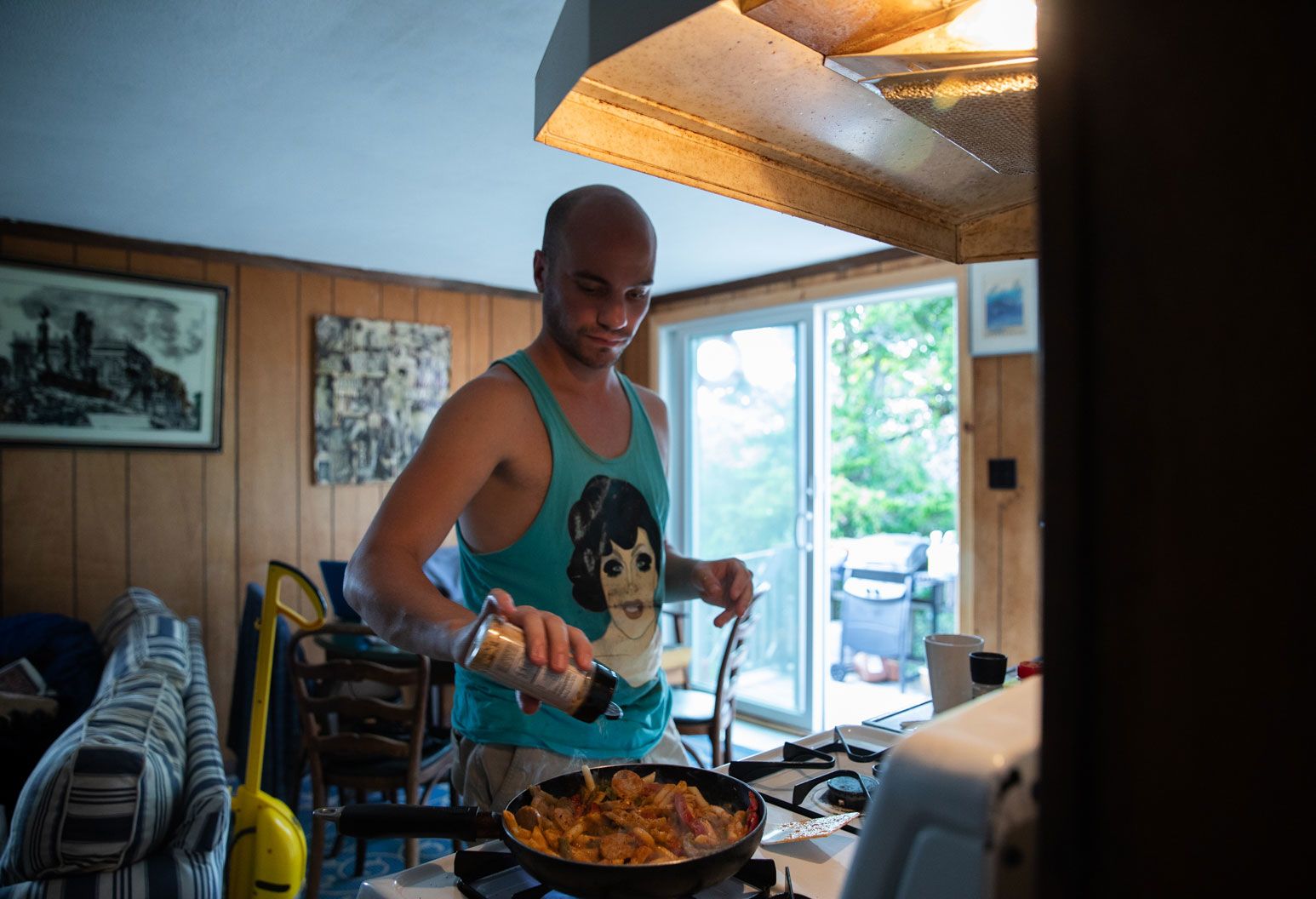
I hope that being transparent with my own life and having people get to see a little bit more into mine helps diminish the stigma of HIV. Even in the gay community, stigmas still exist, and they are wrong. People with HIV are not dangerous! If you’re taking your meds, living a healthy life and owning it, then you’re as normal as anyone else.
The Well is Northwell Health’s commitment to the future of health care. In this time of information overabundance, much of which is inaccurate, unhelpful, or even difficult to understand, Northwell Health is on a mission to make a difference as an honest, trusted, and caring partner. The site connects with consumers to provide them with personalized content that reduces their stress, makes them laugh, and ultimately feel more confident and capable on their healthcare journey.